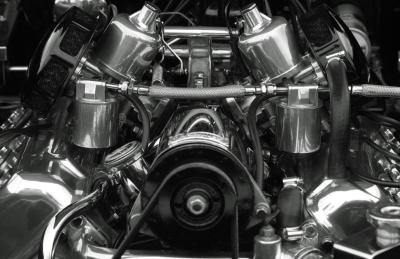
Serpentine belt replacement on the 2005 Chevy Uplander is easy. The most important thing to remember is to route the new belt back onto the pulleys the correct way. The serpentine belt controls all the pulleys on the front of the engine. These pulleys control components such as the alternator, power steering pump, water pump and the air-conditioner pump. You can replace the serpentine belt in about 10 minutes.
Pop the hood on the 2005 Chevy Uplander. Locate the serpentine belt diagram on top of the fan shroud that is covering the radiator. The serpentine belt routing diagram will be a picture of all the pulleys with the belt routed around the pulleys. This diagram will give you the correct routing procedure when putting the new belt on the pulleys. If you cannot locate the serpentine belt routing diagram, take a pen and notepad and draw out the exact direction that the old belt is routed around the pulleys and use this diagram when putting the new belt on.
Locate the serpentine belt tensioner. The belt tensioner is on the passenger side of the engine in the front. The tensioner has a pulley on it and a square 3/8-inch hole. Take a 3/8-inch ratchet and insert the square head of the ratchet into the square hole on the belt tensioner.
Turn the belt tensioner clockwise to relieve the tension in the serpentine belt. Remove the belt from the belt tensioner pulley with your free hand. Then let the tensioner go back to its original place. Finish removing the belt from the rest of the pulleys. Pull the old belt out of the engine compartment.
Put the new belt around the bottom crankshaft pulley first. The crankshaft pulley is the big pulley on the bottom center of the engine. Then route the belt across the remaining pulleys. Leave the belt tensioner pulley for last.
Turn the belt tensioner clockwise again to give you the slack you need to slide the new belt onto the belt tensioner pulley. Slide the new belt onto the belt tensioner pulley and release the tension on the belt tensioner. The belt tensioner will then pull the slack out of the belt. Inspect the belt to make sure it is in all of the pulleys.
Crank the engine and inspect the belt again to make sure it is still seated inside all of the pulleys. If so, turn the engine off and close the hood.